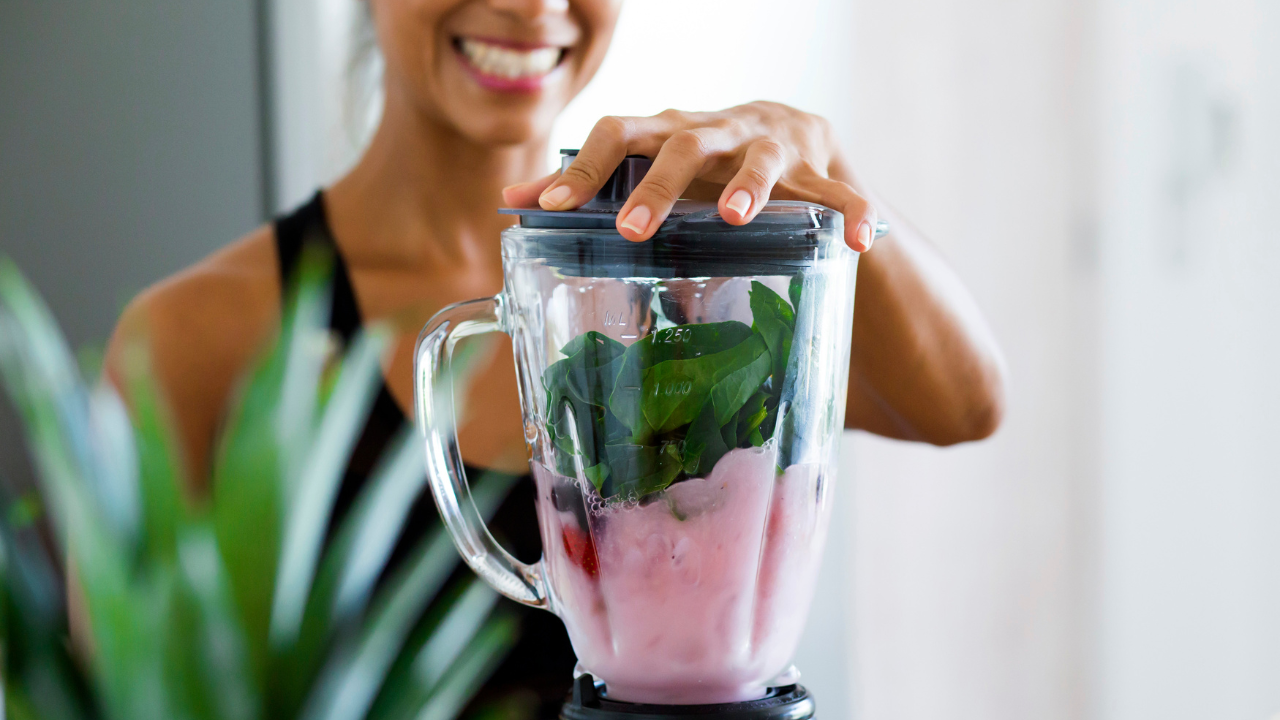Power up - nutrition for new mamas

Looking for some tips to make sure you POWER UP for the demands of the postpartum period?
Good nutrition is important for everyone, but it’s especially important for new mamas who are recovering from the strain pregnancy and childbirth put on their body, and possibly also breastfeeding! Nutritionist Fleur Bugeja gives us her recommendations below...
Don’t diet!
It’s important to stay away from fad diets and calorie counting, and focus more on getting enough of the good stuff and limiting the junk. You need to get plenty of calories, but most of those calories should come from whole foods. This means focusing on nutrient-rich foods, such as:
- Whole grains
- Lean meats and proteins
- Fresh fruits and vegetables (the darker the color, the more nutrients it likely has)
- Low-fat dairy (unless your doctor recommends full-fat dairy for you)
- Nuts and beans and other legumes
Stock up on healthy foods
If your cabinets and refrigerator are full of healthy foods, you’ll be more likely to eat the way you should be eating. Planning ahead and cooking in bulk can save you time and help you avoid convenience foods. Make a list of healthy choices and stick to it when you go to the grocery store. Don't shop when you’re hungry if you can avoid it. Also, read labels and avoid processed foods with more than five easily identifiable ingredients.
Watch your portions
It’s important to choose healthy snacks, such as whole, fresh fruit, nuts, fresh vegetables, cottage cheese, and whole-grain crackers. Remember to watch your portions and limit your intake of unhealthy snacks.
Drink plenty of water
Staying hydrated is important for everyone, but especially for new mums. Be sure to drink enough water throughout the day, and keep a glass of liquid near your favorite breastfeeding spot.
Pay extra attention if you're breastfeeding...
Breastfeeding mothers or women who are pumping breast milk frequently ask if there are special dietary considerations during this time. In most cases, the answer is no. Nutrition for breastfeeding mothers should consist of a well-balanced diet and enough liquids. Although shedding the extra weight gained during pregnancy may be one of your concerns, strict weight-loss programs are not recommended, especially during the first few months of breastfeeding!
There are no special diets a breastfeeding mother must eat, but the following suggestions may help you focus on your eating patterns while breastfeeding:
- Get adequate fluids
- Choose a variety of foods, and take in enough calories
- Eat a variety of foods to get the calories, vitamins, and minerals you need to remain healthy.
Experts recommend that you eat at least 2,000 calories per day while breastfeeding, with your optimal caloric intake being 500 calories above what was recommended for you before you became pregnant (for total calories between 2,300 and 2,700). Make sure to eat foods from the following food categories:
- Meats
- Beans
- Vegetables (especially leafy green vegetables)
- Fruits or 100 percent fruit juice (not fruit drinks)
- Breads, cereals, and grains
- Milk, cheese, and eggs
Other nutrition considerations for breastfeeding mothers include:
- Spicy or gas-producing foods are common in the diets of many cultures, and these kinds of foods do not bother most babies. A few babies will develop gas or act colicky when their mothers eat certain foods. However, there is no one food or food group that creates problems for all babies. Unless you notice that your baby reacts within six hours every time you eat a certain food, there is no need to avoid any particular foods.
- Vegetarian or mostly vegetarian diets have been the mainstay of many cultures for centuries, and the breast milk of vegetarians is usually as nutritionally appropriate as that of other mothers. While you’re breastfeeding, you will want to be sure that your diet includes complete proteins, so eat a wide variety of foods. Many vegetarians, including some lacto-ovo vegetarians (who eat eggs and dairy products), may require supplemental vitamin D, iron and calcium during the period they are breastfeeding. Women who are eating vegan or macrobiotic diets may produce milk that is deficient in vitamin B12. These mothers often require supplements of vitamin B12 so their breast milk will contain a sufficient amount.
- Drinking caffeinated beverages may make your baby jittery or irritable and can make him or her have difficulty sleeping, especially if you drink too much caffeine or drink it very quickly. Drink mainly caffeine-free beverages when breastfeeding. If you cannot give up your caffeine, limit your intake to about two eight-ounce servings per day.
- It is best to avoid drinking alcoholic beverages while breastfeeding or pumping for milk. Alcohol does enter the milk supply and can affect your baby. If you do have an alcoholic drink while breastfeeding, you may need to pump and discard the milk.
- It is best to avoid smoking when breastfeeding or pumping. Nicotine and its byproducts pass into milk, and tobacco use may cause a baby to have a more rapid heartbeat, restlessness, vomiting or diarrhoea. In addition to its possible effects on the baby, tobacco use can interfere with milk let-down and it may reduce the amount of milk you produce.
In conclusion, despite the instinct to focus mainly on your newborn, taking care of your nutrition is crucial as a new mama. A balanced diet with adequate fluids, good sources of protein and whole foods and enough calories is key to supporting your body's recovery after pregnancy and birth, and to adequately support breastfeeding.
Should you like to book a personalised consultation regarding your pregnancy or postpartum nutrition, the author Fleur Bugeja (State Registered Nutritionist, MSc. Weight Management, BSc. (Hons.) Physiotherapy, P.G. Dip. Nutr. & Diet., SRP) can be contacted on [email protected] or on +356 79314049.
